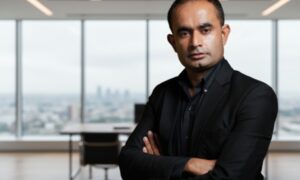For decades, Kerala’s high literacy rate and global diaspora were celebrated as hallmarks of social progress. Yet this success story had a hidden cost: talented young people were leaving the state in search of opportunities elsewhere. Doctors, engineers and entrepreneurs migrated to metropolitan hubs in India and abroad because they believed that staying in their hometowns would stall their careers. This phenomenon of “brain drain” created a cycle in which local communities lost skilled workers and families were separated across continents. Silicon-Jeri, a fintech innovation hub founded by Sabeer Nelli in Manjeri, aims to reverse this trend. The hub has become a magnet for talent, demonstrating that world-class careers can be built without leaving home. By fostering an environment where entrepreneurs and engineers can work on projects that rival those in major cities, Silicon-Jeri shows that innovation is about vision and commitment rather than location.
Inside Silicon-Jeri, engineers develop payment solutions Zil Money that power businesses across the United States and beyond. Startups incubated within the hub explore fields like blockchain, artificial intelligence and financial inclusion—areas often associated with global cities. This world-class work environment offers young professionals a chance to pursue ambitious careers while staying close to their families and cultural roots. The notion that one must leave home to find success is being dismantled as engineers code for fintech products in the morning and attend family gatherings in the evening.
The hub also addresses systemic barriers that traditionally limited access to innovation. Instead of requiring networks, capital and elite connections, Silicon-Jeri lowers these barriers by providing mentorship and incubation within walking distance of local colleges. A student who previously needed contacts in Bangalore or Mumbai can now meet mentors and investors in Manjeri. This democratization of opportunity ensures that innovation is not restricted to those with privilege but extended to anyone with potential. Because these opportunities are available locally, the narrative of what is possible has shifted. Conversations among young people now revolve around startups, fintech ideas and hackathons rather than migrating abroad.
The cultural impact of this transformation is profound. Parents who once encouraged their children to leave Kerala now see the possibility of global careers at home. Families remain intact as ambitious children find fulfilment without being forced to choose between belonging and success. This shift fosters a sense of community and shared prosperity, as success no longer necessitates separation.
Economically, the reversal of brain drain creates a virtuous cycle. Retaining talent means that Kerala can capture the value created by its own workforce. Every engineer who stays, every startup that scales, and every entrepreneur who builds locally contributes to job creation and the expansion of new industries. The planned one-hundred-acre campus, complete with research labs and vocational academies, underscores a long-term commitment to empowering youth. Instead of a temporary experiment, this expansion signals a durable vision for transforming Kerala’s role in the global innovation economy.
Behind this mission is a deeply personal story. Sabeer Nelli, who built a fintech empire across continents, understands both the opportunities of working abroad and the costs of leaving home. With Silicon-Jeri, he has created a platform where the next generation need not make that trade-off. Young people can blend global ambition with local identity, rewriting the narrative that success requires distance. This re-centering of ambition within Kerala not only empowers youth but also redefines the region’s place in the global economy.
Silicon-Jeri’s success shows that reversing brain drain is not a pipe dream but a practical strategy rooted in opportunity and inclusion. By offering world-class work, mentoring, and resources in Manjeri, the hub enables youth to build meaningful careers while staying connected to their families and heritage. The cultural shift—where conversations about migration are replaced with discussions about startups and hackathons—signals a profound change in mind-set. As more young people stay and thrive, they become ambassadors for a new vision of Kerala, one in which ambition is defined by depth rather than distance. The reversal of brain drain is no longer an aspiration; it is a reality unfolding in the heart of Kerala, demonstrating that when opportunity meets vision, local communities can become global innovation centers.































